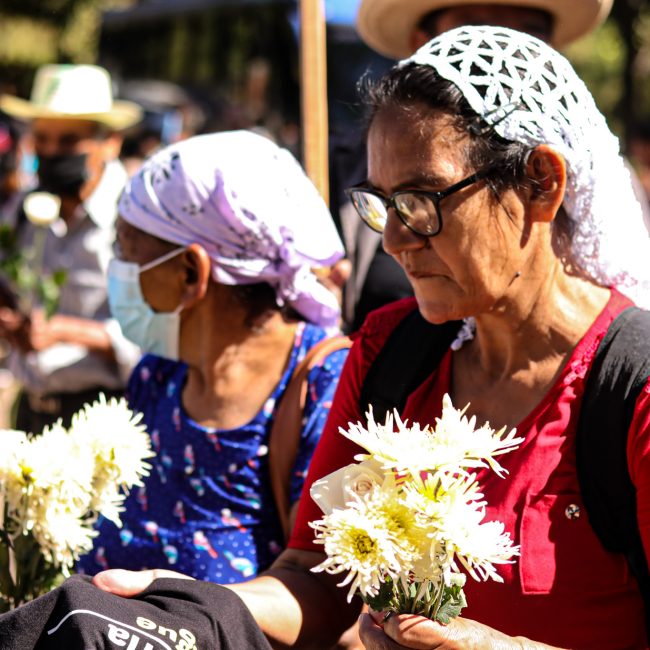Strategic Litigation
Strategic litigation is an effective tool for protecting human rights and improving the system in favor of human rights because it allows victims and their advocates to challenge unjust laws, policies, and practices, and hold government officials and other powerful actors accountable for their actions.

In the context of northern Central America, we use strategic litigation to expose the human rights abuses and improve the protection of vulnerable populations, such as victims of internal forced displacement and survivors of conflict-related human rights abuses.
One area where Cristosal has used strategic litigation to advance human rights is transitional justice in El Salvador. Cristosal has been working with survivors of the most horrific human rights violations from the country’s civil war to seek justice and reparations for the human rights abuses committed during the conflict. We work in coalition with victims’ groups and civil society organizations to challenge laws that protect perpetrators of war crimes from prosecution and to demand reparations for survivors. Every case is an opportunity for the truth to be told and victims to have a voice.
Cristosal has also used strategic litigation to protect the rights of victims of internal forced displacement, corruption, hate crimes, and police abuse in northern Central America. We have filed lawsuits on behalf of displaced communities, demanding that governments take action to protect their rights and provide them with assistance and support.
These and other examples of strategic litigation demonstrate the power of legal action in advancing human rights and promoting positive change. By using the law to hold governments and other powerful actors accountable, we continue to make a difference in the lives of vulnerable populations and improve the human rights landscape in the region.
Victims of violence and human rights violations in the countries of northern Central America have serious difficulties in accessing justice. Judicial systems do not ensure dignified and respectful treatment or adequate information for victims. They are also inefficient in meeting the obligations of investigation, prosecution, and reparation. The three countries have some of the highest impunity rates in the world.
This cycle of violence and impunity has deep roots in the history of the region. For example, after El Salvador’s 12-year civil war in the 1980s, a general amnesty law was passed that protected perpetrators of war crimes. This law embodies a widespread attitude that crimes will not be punished and victims do not matter. Success in strategic and emblematic cases helps restore credibility to today’s Salvadoran justice system. It can send a powerful message about truth and justice across the continent.
